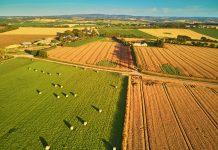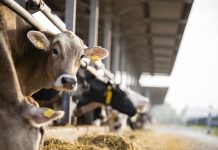Open Access Government explores how Japan’s Ministry of Agriculture, Forestry and Fisheries is working towards sustainably reducing the environmental impact of agriculture and livestock
Agricultural and Livestock Products are indispensable in Japanese food culture, and it is up to the Japanese Ministry of Agriculture, Forestry and Fisheries (MAFF) to maximise this potential, work towards sustainable methods of production, and also provide opportunities for experiential activities in these areas, which include educational farms, to enhance people’s understanding of food and agriculture, forestry and fisheries on a national level. As we read on the website of MAFF, their mission is to hand down ‘food’ as the basis of human life and a secure “environment” to future generations. We make our utmost efforts to always directly address people’s expectations and propose and implement visionary policies.”
These main indispensable agricultural products consist of rice, vegetables, fruits, flowers and livestock and thus have various support measures which are currently being implemented for expanding both production and consumption, all to help achieve this vision. Minister of Agriculture, Forestry and Fisheries Taku Eto, in a previous article for Open Access Government, explained Japan’s efforts to realise Smart Agriculture and stated that it is “a new form of agriculture driven by data and can create and provide the added value to meet consumer needs appropriately through farming.” This is just one of the many approaches being taken to increase sustainability and protect agriculture.
Livestock policy
Livestock products as milk, dairy products, beef, pork, chicken, and hen eggs are sources of protein and calcium and are particularly important. To deliver safe and good-quality domestic livestock products to consumers in Japan, support is being provided for the economic stability of livestock farmers and for raising their productivity.
In April 2019, Japan strengthened its penalties for bringing in meat or animal products from overseas illegally. Then on 1st July 2020, due to the amendment of the Act on Domestic Animal Infectious Diseases Control, increasingly strict policies were reinforced:
• The existing penalty of a fine of up to 1 million yen has now been raised to 3 million yen.
• Bringing meat or animal products is punishable with imprisonment for up to three years or a fine of up to 3 million yen (up to 50 million yen for businesses).
• Animal Quarantine officers can ask if you have any animal products and inspect your luggage.
• Animal Quarantine Officers have the authority to dispose of meat or animal products that have been brought illegally.
• There can be arrests on the charge of bringing in meat or animal products illegally.
• If you fail to declare meat or animal products which are then found in your luggage, you would be punishable.
Current priorities in the Japanese Agricultural Standard (JAS) for
organic livestock
Certain measures need to be taken to ensure livestock is raised organically, to achieve sustainable agriculture. The Japanese Agricultural Standards (JAS) for organic plants and organic processed foods of plant origin were first established in 2000 alongside the Guidelines for the Production, Processing, Labelling and Marketing of Organically Produced Foods which were adopted by the Codex Alimentarius Commission. The organic JAS logo can only be applied by registered business entities that have been certified by the Accredited certification body to verify that organic foods are produced in compliance with JAS. Furthermore, from July 2020, this also applies to organic livestock products (beef, eggs) and organic processed products with animal origin ingredients (cheese, chocolate). It is now completely prohibited to sell agricultural products and processed foods as “organic” without the Organic JAS logo. This aims to monumentally contribute to improving the reliability of products.
While it is important to take measures such as those outlined above, the Ministry must also turn their focus engaging the population with these practices. Today, there is growing interest in Japanese food along with the registry of “Washoku, traditional dietary cultures of the Japanese” as an Intangible Cultural Heritage of Humanity of UNESCO. Activities for handing down this Japanese food culture to future generations have started in earnest, and now various measures are being implemented to boost consumption of domestic agricultural, forestry and fishery products and foods. Some examples of the ministries efforts to work with these interests and encourage participation in farming include:
• Women’s forum for fish: This initiative targets consumers and their children in Tokyo. Women involved in the fisheries industry throughout Japan carry out this initiative that conveys the “importance of the ocean, fish and fisheries” and provides participants with the opportunity to prepare and enjoy fish cuisine together. This forum also promotes interchanges between cities and fishing villages including visits to fishing villages by children. Merging the rural and industrial areas in Japan is a high priority of the Ministry.
• Ibaraki Co-op Consumers’ Cooperative Association: This association forms “Shokuiku” support teams, holds a variety of “Eating is important” activities for young school children and also undertakes agricultural experiential activities in cooperation with JA and producers. It also promotes “Let’s eat products from Ibaraki Prefecture,” a “Shokuiku” experiential activity, in cooperation with government agencies.
This is contributing to Japans push for sustainable and inclusive agriculture, in addition to the Ministry of Agriculture, Forestry and Fisheries making use of the “cyclical function of nature”. “Our continued endeavours help to create unique natural environments that include regional land, forests and coastal seas, along with providing a nurturing environment for diverse- types of flora and fauna,” as stated by the Ministry, “the duties of the Ministry of Agriculture, Forestry and Fisheries (MAFF) are close to people’s lives.”











